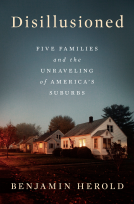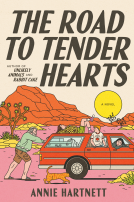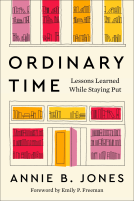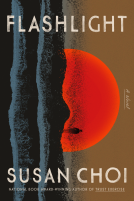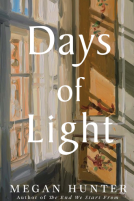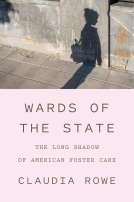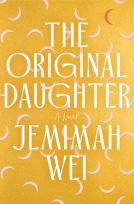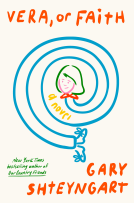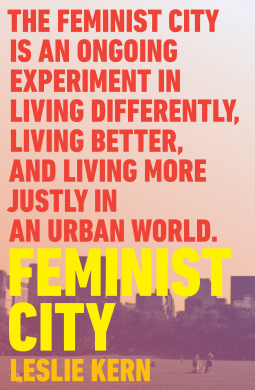
Feminist City
Claiming Space in a Man-Made World
by Leslie Kern
This title was previously available on NetGalley and is now archived.
Send NetGalley books directly to your Kindle or Kindle app
1
To read on a Kindle or Kindle app, please add kindle@netgalley.com as an approved email address to receive files in your Amazon account. Click here for step-by-step instructions.
2
Also find your Kindle email address within your Amazon account, and enter it here.
Pub Date Sep 14 2021 | Archive Date Sep 14 2021
Verso Books (US) | Verso
Talking about this book? Use #FeministCity #NetGalley. More hashtag tips!
Description
We live in the city of men. Our public spaces are not designed for female bodies. There is little consideration for women as mothers, workers or carers. The urban streets often are a place of threats rather than community. Gentrification has made the everyday lives of women even more difficult. What would a metropolis for working women look like? A city of friendships beyond Sex and the City. A transit system that accommodates mothers with strollers on the school run. A public space with enough toilets. A place where women can walk without harassment.
In Feminist City, through history, personal experience and popular culture Leslie Kern exposes what is hidden in plain sight: the social inequalities built into our cities, homes, and neighborhoods. Kern offers an alternative vision of the feminist city. Taking on fear, motherhood, friendship, activism, and the joys and perils of being alone, Kern maps the city from new vantage points, laying out an intersectional feminist approach to urban histories and proposes that the city is perhaps also our best hope for shaping a new urban future. It is time to dismantle what we take for granted about cities and to ask how we can build more just, sustainable, and women-friendly cities together.
Available Editions
| EDITION | Other Format |
| ISBN | 9781788739825 |
| PRICE | $19.95 (USD) |
| PAGES | 224 |
Featured Reviews
Leslie Kern, Feminist City, Verso 2019
I was disappointed that Leslie Kern fails to resolve the problems she raises in this detailed description of the way in which cities are built to meet the needs of white able-bodied men, rather than the wider population that inhabits them. The way in which the problems are laid out provides so much of the information needed for readers to consider a range of possible changes to begin finding solutions. But is this enough?
In her preface, Kern suggests that the Covid pandemic has publicised the role of care workers, and that the caring professions’ requirements of their cities need to be addressed. This is an excellent way of giving the topic immediacy. The introduction is less accessible and direct in its outlining some theories underlying the need for a feminist city and reference to the categories of people Kern believes are discriminated against by the current design of cities. Attention is given to women, and the various groups that are embodied by that description, acknowledging the possibility that white middleclass women may have agendas that impact on categories often subsumed under the category, women.
The chapters cover topics under headings such as City of Men; Who Writes the City?; City of Friends; City of One; City of Protest; City of Fear; City of Possibility. Within these topics there are subtopics, including those covering mothers in the city, personal space, and particular groups’ lack of safety. Some chapters deal with personal experience, others draw upon popular culture or political activism.
The writer’s experience of city planning and public transport as a pregnant woman, despite the notices designating some seats for that purpose as well as those with a disability, or are elderly, resonate. The difficulties with public transport, including the lack of elevators at railway stations, for people with prams are easily understood, and can be translated into those experienced by people in wheelchairs, who are elderly, ill or carrying heavy and unwieldy parcels.
Her discussion of the way in which some women’s gains may discriminate against other women raise important issues. Two areas where this occurs is in relation to gentrification and the possibility that white middle class women’s gains may discriminate against other women, and the problems faced by transgender women. These concerns may not sit well with some readers. Middle class women may feel sympathy with Kern’s concern with other groups of women but react negatively to the idea that our gains are others’ loss. Some descriptions, such as ‘cis women’ may offend some; others will be satisfied that the debates about transgender have been recognised and settled by this author. Whatever the position a reader adopts, the book does not fail on Kern’s interpretation of feminism and transgender. The most simple statement, that we cannot adopt change without considering its impact, underpins much of the discussion.
While Kern eloquently lays the problems bare, with enough material and examples to draw readers into easy recognition of the way in which cities do not provide for all their inhabitants, she was unable to develop a solid range of suggestions to deal with the problems. There was little recognition that solutions can only be found through community commitment to public spending as well as new design options arising from involving a wider range of people in city planning. I was excited by the topic of this book, and perhaps it is that which made me want so much more.
